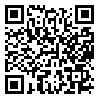BibTeX | RIS | EndNote | Medlars | ProCite | Reference Manager | RefWorks
Send citation to:
URL: http://jdc.tums.ac.ir/article-1-5514-en.html
2- Hamadan University of Medical Sciences, Hamadan, Iran
3- Department of Epidemiology, School of Public Health, Hamadan University of Medical Sciences, Hamadan, Iran
4- Department of Dermatology, School of Medicine, Hamadan University of Medical Sciences, Hamadan ,
Background and Aim: Acne vulgaris is one of the most common skin disorders, affecting more than eighty percent of individuals around puberty. Because of the adverse effects on the patient’s appearance, the disease may have detrimental psychological impacts such as low self-esteem and social isolation. The aim of the present study was to evaluate factors affecting self-esteem in patients with acne vulgaris in Hamadan.
Methods: Patients with acne vulgaris referred to the dermatology clinic of Hamadan’s Sina Hospital (as the case group), and their healthy accompanying persons (as the control group) were included in the study. After obtaining written informed consent, demographic dat
a were recorded and participants were asked to fill out a questionnaire. To assess the severity of acne, Global Acne Grading System (GAGS) was used. In addition, Coopersmith Inventory was applied to measure the self-esteem of the participants. In data were analyzed using STATA 14.0 software.
Results: Overall, 184 patients with acne and 177 controls were included in this study. The mean age of patients and controls was 17.89+3.13 and 17.72+2.94, respectively. Independent samples t-test showed that the mean Self-Esteem Index of patients was significantly lower than controls (32.04+8.29 vs. 34.85+7.73, P<0.001). The severity of acne was inversely correlated with self-esteem; one score increase in GAGS would result in 0.1 unit decrease in self-esteem index (P<0.001).
Conclusion: Acne vulgaris is associated with low self-esteem and the severity of acne is inversely correlated with self-esteem level.Received: 2021/06/2 | Accepted: 2021/05/5 | Published: 2021/05/5
| Rights and permissions | |
 |
This work is licensed under a Creative Commons Attribution-NonCommercial 4.0 International License. |





